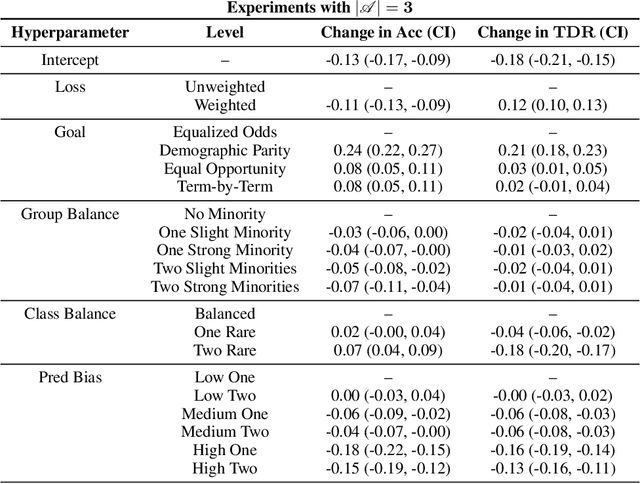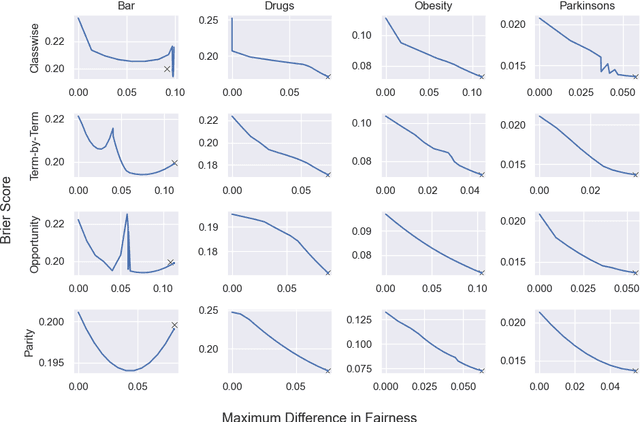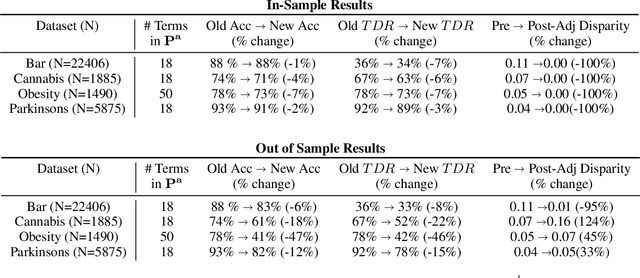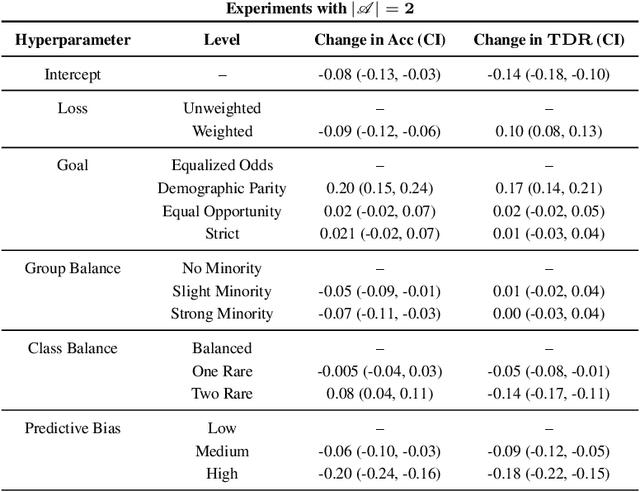Blackbox Post-Processing for Multiclass Fairness
Paper and Code
Jan 12, 2022



Applying standard machine learning approaches for classification can produce unequal results across different demographic groups. When then used in real-world settings, these inequities can have negative societal impacts. This has motivated the development of various approaches to fair classification with machine learning models in recent years. In this paper, we consider the problem of modifying the predictions of a blackbox machine learning classifier in order to achieve fairness in a multiclass setting. To accomplish this, we extend the 'post-processing' approach in Hardt et al. 2016, which focuses on fairness for binary classification, to the setting of fair multiclass classification. We explore when our approach produces both fair and accurate predictions through systematic synthetic experiments and also evaluate discrimination-fairness tradeoffs on several publicly available real-world application datasets. We find that overall, our approach produces minor drops in accuracy and enforces fairness when the number of individuals in the dataset is high relative to the number of classes and protected groups.
 Add to Chrome
Add to Chrome Add to Firefox
Add to Firefox Add to Edge
Add to Edge